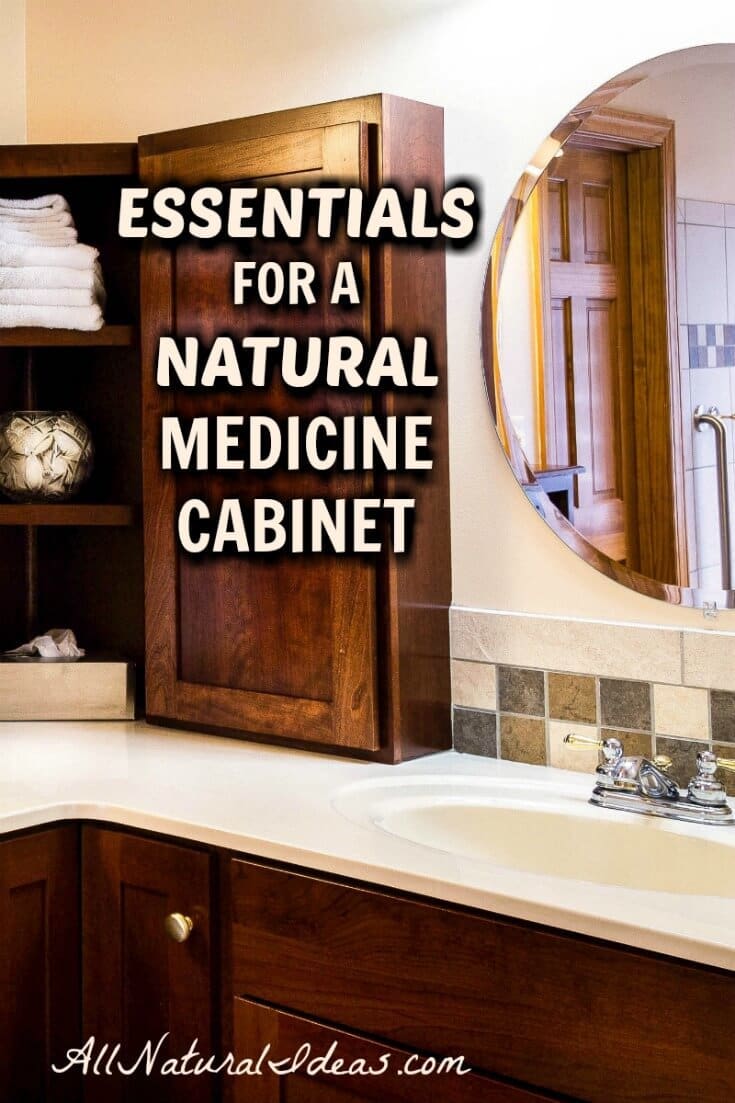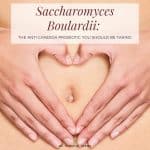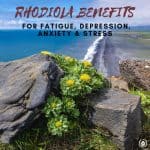With so many medicinal herbs, it’s tough to figure out which ones to always have on hand. Come see what natural medicine cabinet essentials we keep in stock.

Ditch the half-used bottles and little boxes of over-the-counter and prescription medicines that expired years ago! Instead, stock up on some of these natural medicine cabinet essentials.
The Poison Purger: Activated Charcoal
It’s a good idea to always have activated charcoal at the ready in your natural medicine cabinet. In fact, you should bring it with you if you go out to dinner or travel abroad.
Activated charcoal can help you quickly recover from food poisoning. And if you have very young kids you’ll definitely want to have some on hand.
If your little one manages to get into the drawer where you keep household cleaners or other chemical based produced, activated charcoal can help. Activated charcoal helps purge harmful ingredients if they are swallowed. Most hospitals keep activated charcoal on hand to treat poison intoxication.
The Cold Fighter: Oil of Oregano
At the slightest sign of an imbalance, oil of oregano can defeat a virus from manifesting as a full-blown cold. Oil of oregano drops are easy to use. Simply squeeze a few drops in some water. The taste is overwhelming for some people, but its efficacy in nipping colds in the bud is worth it. When you’re feeling run down, oil of oregano can give your immune system the boost in needs to fight off an infection.
One of many studies published on oil of oregano, this one, concluded carvacrol [the main compound in oregano oil] is effective in inactivating a particular norovirus within one hour of exposure. It’s said to act directly on RNA (the chemical messenger of DNA and maker of proteins).
Another study of essential oregano oil, published in Pathogens and Disease, concluded it’s one of the most promising natural compounds that can be used to develop safer antibacterial agents. This is why it’s one of the top natural medicine cabinet essentials.
The Headache Eliminator: Butterbur
No, butterbur has nothing to do with the butter you spread on toast. But if you have a headache, this botanical can help ease headaches. In fact, this study concluded that butterbur can help prevent migraine headaches.
Ginger essential oil has also shown clinical efficacy in preventing migraines. Lavender oil, lime tree, teaberry, betony, evodia, and lots of other botanicals can help alleviate or prevent headaches, though large scale studies verifying their effectiveness is scant.
Some people also swear by rosemary oil (blended in a carrier oil) to help treat headaches. Simply rub a couple drops on the temples of the forehead and you’ll feel better in no time, although, again, it’s important to note that scientific validity of rosemary’s treatment for headaches is extremely limited.
All-Natural Sleep Aid: Melatonin
Some people swear by melatonin for combatting insomnia; others find it of little use. However, the verdict seems to be out on melatonin. A meta-analysis, involving 19 studies concluded it increases total sleep time and improves overall sleep quality. However, if you have a pretty bad case of insomnia, you may need to combine melatonin with other botanical all-natural solutions.
Check with your local herb professional or naturopathic doctor. The meta-analysis concluded the effects of melatonin on sleep are modest but do not appear to dissipate with continued melatonin use. So if you have a mild case of insomnia or jet lag, keep this all-natural sleep aid around as one of your essentials for a natural medicine cabinet.

For Bruises and Sore Muscles: Arnica
Although arnica is a member of the delicate daisy-like plant, it’s a powerhouse against bruises and sore, achy muscles. A clinical trial used a species of arnica extract in the treatment of tendonitis of the wrists and hand. The study’s authors concluded, “Statistical data analyses demonstrated a significant reduction in the perception of pain in the arms in the test group, when it was compared to those receiving only the placebo.” It’s no wonder arnica has been popular as an alternative medicine.
For Bites & Burns (and other first-aid essentials): Lavender
Lavender is truly a multi-purpose essential oil. There are so many benefits of lavender, but a couple that are worth noting for the purposes of stocking your all-natural medicine cabinet is relief from insect bites and minor burns.
There’s a lot of anecdotal evidence to suggest the essential oil of lavender has therapeutic benefits for nasty spider bites and sunburns, as well as general pain relief. This research study supports lavender oil’s use in cardiac surgery patients.
If you’re somebody who needs a lot of modern, scientific validity confirming lavender’s use as an all-natural medicine cabinet staple for bites and burns, studies are hard to come by, however, centuries of anecdotal affirmations about its effectiveness shouldn’t be discounted. Lavender oil can also be used as a surrogate, or in conjunction with hydrogen peroxide for cleansing wounds.
For Healing Skin Wounds Fast: Manuka Honey
It’s said that manuka honey can help skin wounds heal quickly while preventing infection. This honey naturally contains hydrogen peroxide which helps to clean the skin area. It’s even been shown in studies like this one that manuka honey has antibacterial properties. Always keep a jar of this magical honey with your other natural medicine cabinet essentials.
For Anxiety: Chamomile
Especially beneficial for infants and young children, chamomile has a calming effect. This study suggests that chamomile may indeed contain antidepressant and antianxiety properties. An added bonus: chamomile tea may be beneficial for indigestion and upset stomachs.
For Nausea & Upset Bellies: Ginger
Ginger isn’t just for in-between bites of sushi. Ginger root has been used for millennia to treat a wide variety of ailments and uses, including treating nausea and indigestion. Sure, ginger goes great in a smoothie or Asian stir fry, but it’s also an essential for a natural medicine cabinet.
Natural Medicine Cabinet Essentials: Conclusion
There is no set list for the essentials that should be in every natural medicine cabinet. It really depends on the items that you find most effective for you and your family. This is just a list to help you get started in stocking up on alternative medications.
What are your natural medicine cabinet essentials?

Looking for more things to add to your natural medicine cabinet? Check out these articles:
Melaleuca Essential Oil Uses for a Natural Medicine Kit?
Comfrey Oil: Healing Boo-Boos the Natural Way
Pickle Juice for Cramps: Does it Really Work?
Epsom Salt Bath For Hemorrhoids: Is it Instant Relief?
The Best Essential Oils for Earache and Ear Infection
Discover the Best Natural Cure for Toenail Fungus
Thieves Oil: How This Infamous Blend Boosts Immunity





